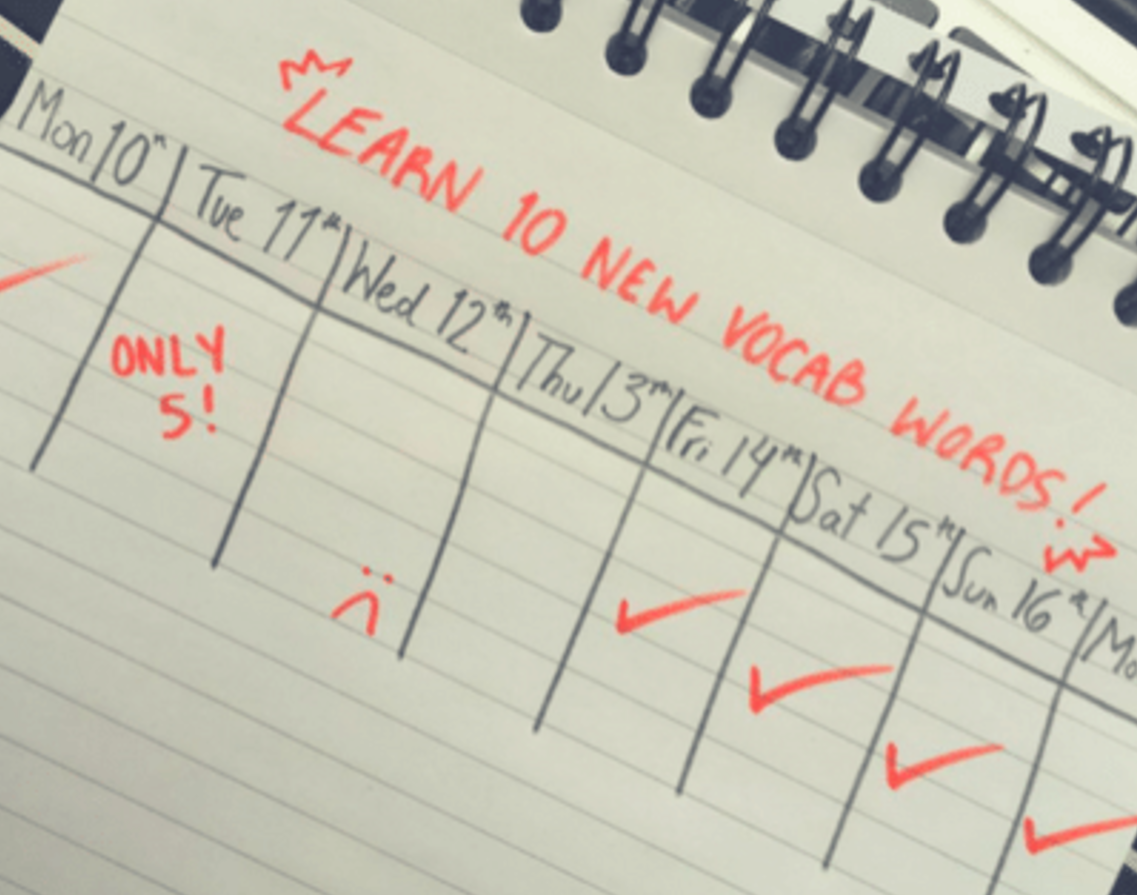Summer’s warm and lazy days are almost done – and you realise you’ve completely slacked off on learning that new language you set as a New Year’s goal. But don’t worry – there’s still plenty of days in the year to become a fluent speaker. Here are some tips on how to get back in the language groove.
1. Set an attainable and specific goal
First, become familiar with the European Common Framework that defines language levels – this will help you set a specific goal instead of a broad one such as ‘Learning Spanish’. There are many online tests that allow you to determine your level according to this framework, which you can use to track your progress. This breakdown of language levels can help you decide whether you just want to have a broad understanding of the language (such as level A2), if you want to be fluent enough to carry conversations and read simple books (B1/B2) or if you really want to master it (C2). This will make it easier to set a goal and a reasonable timeframe to meet that goal.
2. Pick a goal, make a grid and set a prize
Simply setting a goal sometimes is not enough – so get some paper and make a grid of the days of the week. Tick off each day in which you do something to reach that goal, and be strict with yourself! Set a prize and a minimum number of consecutive days you must study in order to earn it – for example, if you get 10 ticks in a row, reward yourself with a nice meal, if you get a whole month of ticks, buy yourself a pair of shoes!

3. Sign up for a newsletter or app
Sometimes you need help to remember to do something. Signing up to a newsletter ensures that you practice the language every day (or every time you check your email/social media). Depending on your level, you can sign up to services that send you one new vocabulary word every day, or a full rundown of the local news in a different language.
4. Decide to learn something completely new
Is there something you always wanted to learn more about but haven't had a chance? Learning vocabulary can sometimes be dull and repetitive – so choose a completely new topic that you want to learn even in your native language. Whether you aim to name all the main rivers of Europe, want to know a little bit about psychology or how to bake, doing so in your target language can help you keep on track whilst acquiring new words.

5. Join a club or activity in your target language
Sometimes learning in lessons isn’t enough – browse your local clubs and activities and you’ll be sure to find something in your target language. Doing this will not only allow you to perhaps learn a new skill or sport, but will connect you with people who speak the language and allow you to practice with these native speakers.
6. Buy a small book and place it somewhere you know you will read it
If you read magazines while you’re on the toilet, replace them with a book in your target language to ensure you’ll read it periodically. If you have a long commute to work, take a small book and read it on your long travels.

7. Sign up for online lessons with a native speaker
The best way to learn a language is to speak it with someone. Additionally, buying and planning lessons in advance will ensure you don’t skip them: you won’t want to disappoint or waste money and this will help you stay on track and actually learn your target language. Buy a lesson pack here.

